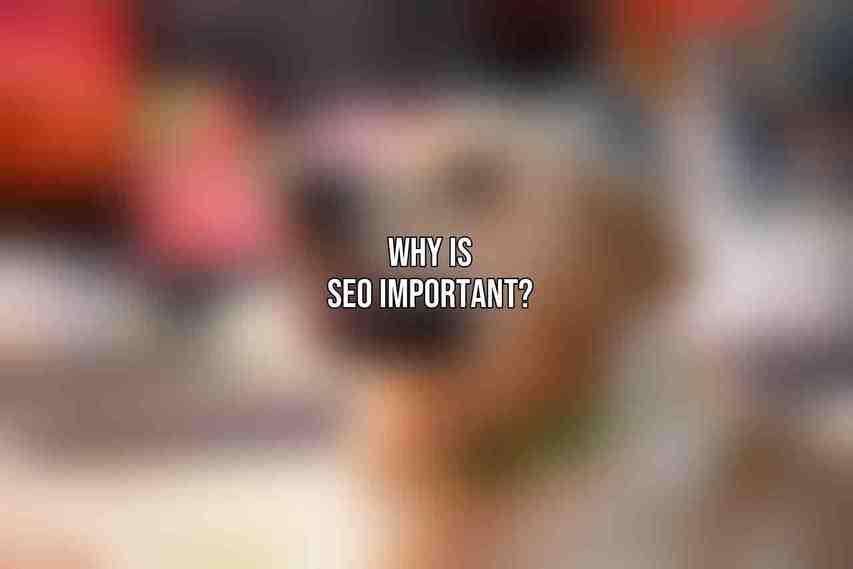Search Engine Optimization (SEO) is a critical component of digital marketing strategies. It involves optimizing websites to increase their visibility on search engines like Google. Understanding the history of SEO helps in grasping its evolution from simple keyword stuffing to complex algorithmic updates that focus on user experience and relevance. SEO has become a cornerstone of online success due to its ability to drive organic traffic and improve search engine rankings.
The importance of SEO for digital marketing can’t be overstated. Firstly, it enhances website visibility by making it more likely to appear in search results. Secondly, it contributes to improved search engine rankings, which are crucial for attracting organic traffic. Lastly, it helps generate enhanced organic traffic, leading to potential conversions and revenue. This trifecta of benefits underscores the significance of SEO in the digital world.
When delving into SEO, it’s essential to understand the different types. There are primarily three types of SEO: On-Page SEO, Off-Page SEO, and Technical SEO. Each type plays a vital role in optimizing websites for search engines and improving their online presence. On-Page SEO focuses on optimizing website content to rank higher and earn more organic traffic, making it a fundamental aspect of SEO strategy. You can find more information on Best Practices for SEO Content Optimization
On-Page SEO: Optimizing Website Content
On-Page SEO involves strategies that website owners can implement on their websites directly. This includes actions such as keyword research, content creation, image optimization, and meta data optimization. Keyword research is a foundational step in on-page SEO that involves identifying relevant search terms to target on a website. By understanding the intent behind different keyword types and conducting thorough keyword analysis, website owners can tailor their content to align with user queries.
Content creation is not just about producing textual information; it’s about crafting high-quality, relevant content that resonates with the target audience and search engines. To optimize content effectively, utilizing headings and subheadings, naturally incorporating keywords, and using internal linking to connect related content are crucial strategies. Image optimization involves more than just visual appeal; it includes using descriptive file names and optimizing image size and format to improve website performance and user experience.
Meta data optimization focuses on enhancing aspects like page titles and meta descriptions to make them more appealing to search engine users. By crafting compelling titles and descriptions that entice clicks, website owners can increase their click-through rates and drive more traffic to their sites.
Off-Page SEO: Building External Authority

Off-Page SEO revolves around activities that take place outside of the website itself but contribute to its overall authority and relevance. Link building is a vital off-page SEO strategy that involves earning high-quality backlinks from authoritative websites. This process requires outreach and relationship building with other website owners to secure valuable backlinks that boost a site’s credibility and search engine rankings.
Social media optimization is another key aspect of off-page SEO. Establishing a strong presence on social platforms and engaging with followers by sharing relevant content can amplify a website’s reach and foster a community around the brand. Additionally, citation building through creating local citations and managing online directories helps improve a website’s visibility in local search results, especially for businesses targeting a specific geographic area.
Stay tuned for more insights in Part 2…
Frequently Asked Questions
What is SEO?
SEO stands for Search Engine Optimization. It refers to the process of optimizing your website to rank higher in search engine results pages, thereby increasing traffic to your site.
Why is SEO important?

SEO is important because it helps you increase your website’s visibility in search engines, driving more organic traffic. This can lead to higher conversion rates, more leads, and increased revenue. You can find more information on Crafting Effective Content Strategies for 2024 Find more on Top SEO Tools and Software for 2024
What are some key elements of SEO?
Some key elements of SEO include keyword research, on-page optimization, link building, and content creation. These factors help search engines understand what your website is about and determine its relevance to search queries.
How long does it take to see results from SEO?
The timeline for seeing results from SEO can vary depending on the competitiveness of your industry, the quality of your website, and the effectiveness of your SEO strategies. It can take anywhere from a few weeks to several months to see significant improvements.
Do I need technical knowledge to master SEO?
While having some technical knowledge can be beneficial, it is not a requirement to master SEO. There are plenty of resources and tools available that can help you learn and implement effective SEO strategies, regardless of your technical background.

